The spy with no name
- Published
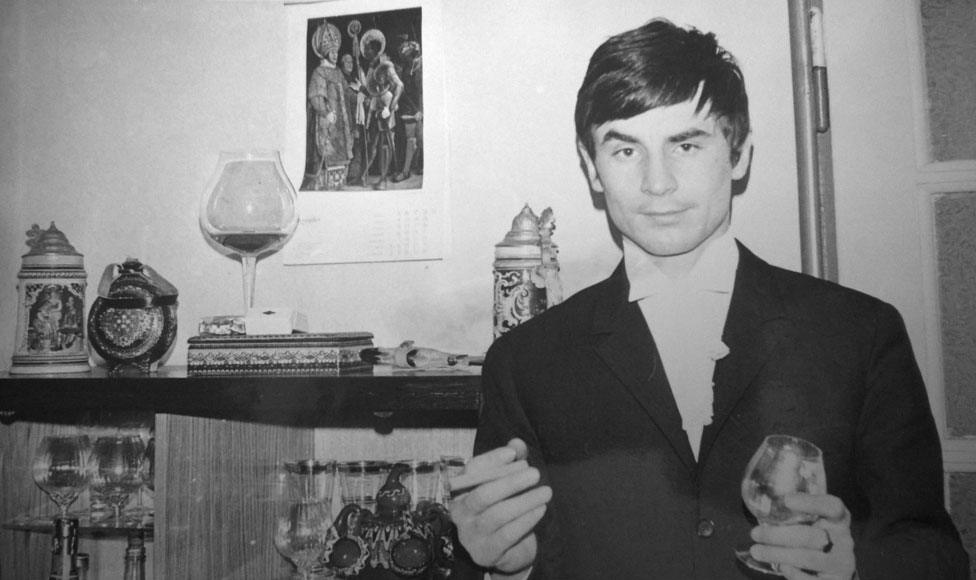
In 1977, Johanna van Haarlem finally tracked down the son, Erwin, she had abandoned as a baby 33 years earlier. She immediately travelled to London to meet him. What followed, writes Jeff Maysh, is an unbelievable story of deception and heartbreak.
It was a cold Saturday morning in April 1988 when a van full of detectives arrived outside the North London home of Erwin van Haarlem. The self-employed art dealer, 44, lived alone in sleepy Friern Barnet, a smattering of brick homes beside the grim North Circular ring road.
The Dutchman's apartment building on Silver Birch Close had become the centre of an investigation led by the British intelligence agency MI5. It suspected that Van Haarlem - whom neighbours described as an "oddball" - was not in the art business at all, but a sinister foreign agent.
Inside, Van Haarlem was hunched over a radio in his kitchen. He was still wearing his pyjamas, but his hair was parted neatly to one side. He was tuned in, as he was every morning, to a mysterious "number station". In his earpiece, a female voice recited numbers in Czech, followed by the blip-bleep of Morse code.
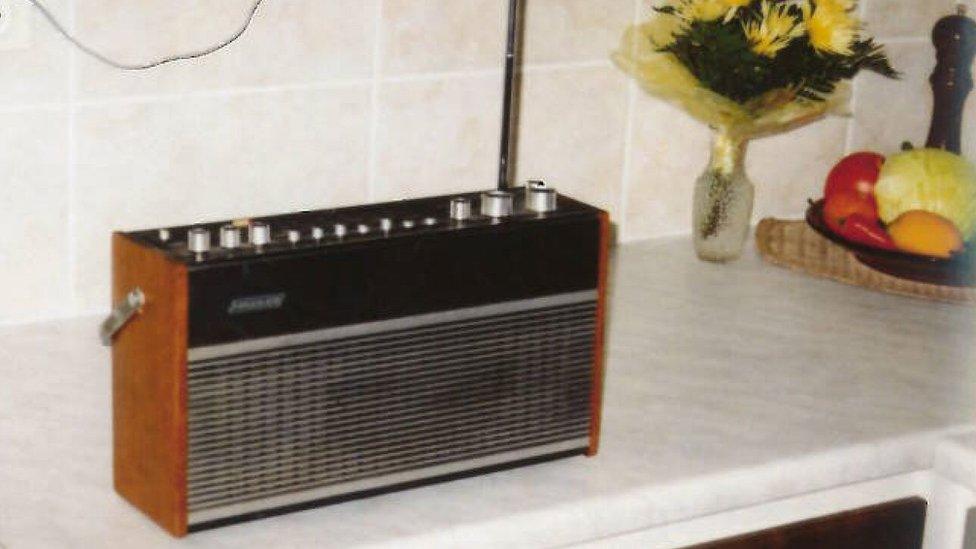
Erwin van Haarlem listened to a station broadcasting numbers in Czech
At 09:15 detectives from Special Branch, the anti-terror unit of London's Metropolitan Police, crashed into his apartment. Van Haarlem tried to lower his radio's antenna. It jammed. When he pulled open a drawer and grabbed a kitchen knife, an officer tackled him, and yelled: "Enough! It is over! It is over!"
Hidden among his easels and paintings, detectives discovered tiny codebooks concealed in a bar of soap, strange chemicals, and car magazines later found to contain messages written in invisible ink. Investigators suspected Van Haarlem was not really from the Netherlands, but was a spy for the UK's Cold War adversary, the Soviet Union.
Under a bright spotlight at a police station in Central London, Van Haarlem protested his innocence. Then, 10 days later, things turned really strange: a visitor arrived claiming to be the prisoner's mother. Johanna van Haarlem was a Dutch woman in her early sixties, who peered at detectives from behind huge glasses. Her son was no spy, she insisted, but an honest Dutchman - the child she had abandoned in 1944 and rediscovered 11 years earlier. The baffled detectives allowed her to visit their suspect.
"Tell me, I'm hearing all these strange stories," she said. "You're not really a spy, are you?"
"We have a saying that where you see the smoke, there will be a fire," Van Haarlem told her. "But this time it is not true. Too much of the smoke and no fire. I did absolutely nothing that could harm England."
Johanna sighed with relief. "But why? Why all of this, then?" she said.
"Don't ask me. Ask them."
And then he noticed a tiny red spot on her forearm. The DNA blood test results from the Home Office laboratory indicated, with near certainty, that they were not related. Johanna van Haarlem broke down in tears as her world collapsed.
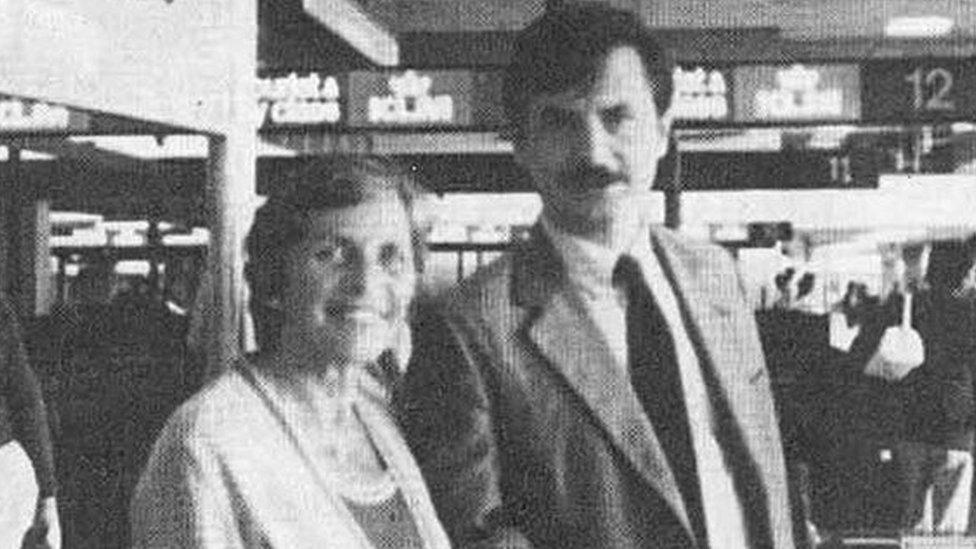
Johanna van Haarlem was 52 on her first visit to London to meet Erwin
On 6 February 1989, at London's Old Bailey, prosecutor Roy Amlot told a jury that the defendant had stolen her son's identity.
"You may think that if he knew all along, it was a cruel thing to do to her," he said.
The trial captivated the press. The Daily Express described Van Haarlem as "an old-fashioned... slick-suited spy who inhabited a world of dead letterboxes and secret codes". Exotic beauties came forward to kiss-and-tell about their love affairs with the spy. But the most wounded victim stood in the witness box, the tragic Dutchwoman, Johanna van Haarlem.
On 4 March 1989, at 11:45, the judge sentenced Erwin van Haarlem to 10 years in prison for espionage. "He is probably the first person to be tried at the Old Bailey under an alias," one senior Scotland Yard officer told a reporter. The "spy with no name", as the newspapermen called him, would take his secrets with him to his cell.

After months of negotiation and false starts, I met Erwin van Haarlem on a spring day in Prague, in 2016. Although he had lived quietly as a free man for the past 23 years, spies famously do not talk. Introduced to me by the Czech crime journalist, Jaroslav Kmenta, Van Haarlem arrived at a restaurant near the city's Old Town Square, wearing a smart blue blazer. After carefully checking my identification he began, in accented English, to tell me his story.
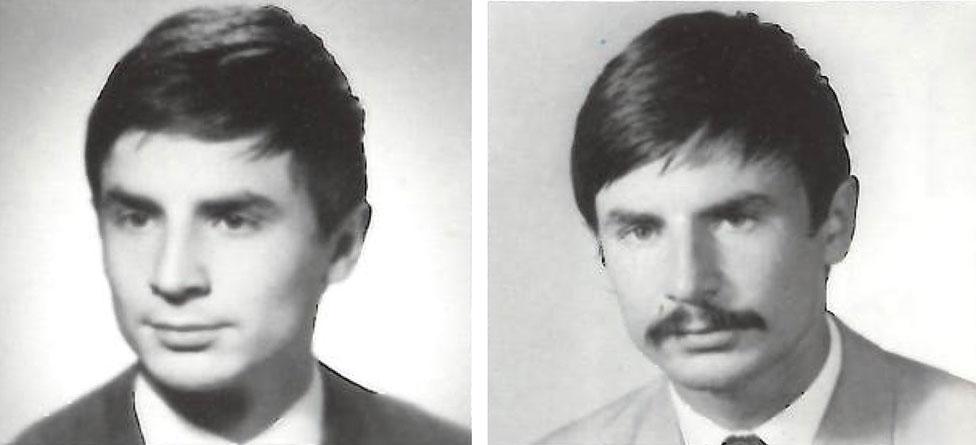
It began on 23 August 1944, when he was born Vaclav Jelinek in Modrany, a small village near Prague. His father had owned a small bakery there, selling biscuits and ice creams, until the Communists took power. Young Jelinek enlisted in mandatory military service, and, as the Cold War intensified, he graduated to a position in the Czechoslovak Ministry of the Interior. He dreamed of military valour and excitement. But what he got was mind-numbing shifts and grunt work.
One day his superiors caught him studying German vocabulary instead of guarding a checkpoint in the snow. They marched him to an upstairs office where he expected disciplinary action. Instead he was introduced to two members of Statni bezpecnost - the Czechoslovak secret State police. The StB was a shadowy spy agency that reported directly to the Soviets.
The StB agents had studied his file and learned that Jelinek was defiant, a womaniser, highly intelligent, prone to violence, patriotic, and a risk-taker. In other words, perfect spy material. After careful training, they decided he was ready to begin an undercover mission abroad, spying on the West.
The StB searched through its files of missing persons and assigned Jelinek a false identity - that of a Dutch boy, abandoned at an orphanage in Holesovice, Prague, at the end of World War Two. The child had been born just one day before Jelinek.
"Your new name," they told him, "is Erwin van Haarlem."
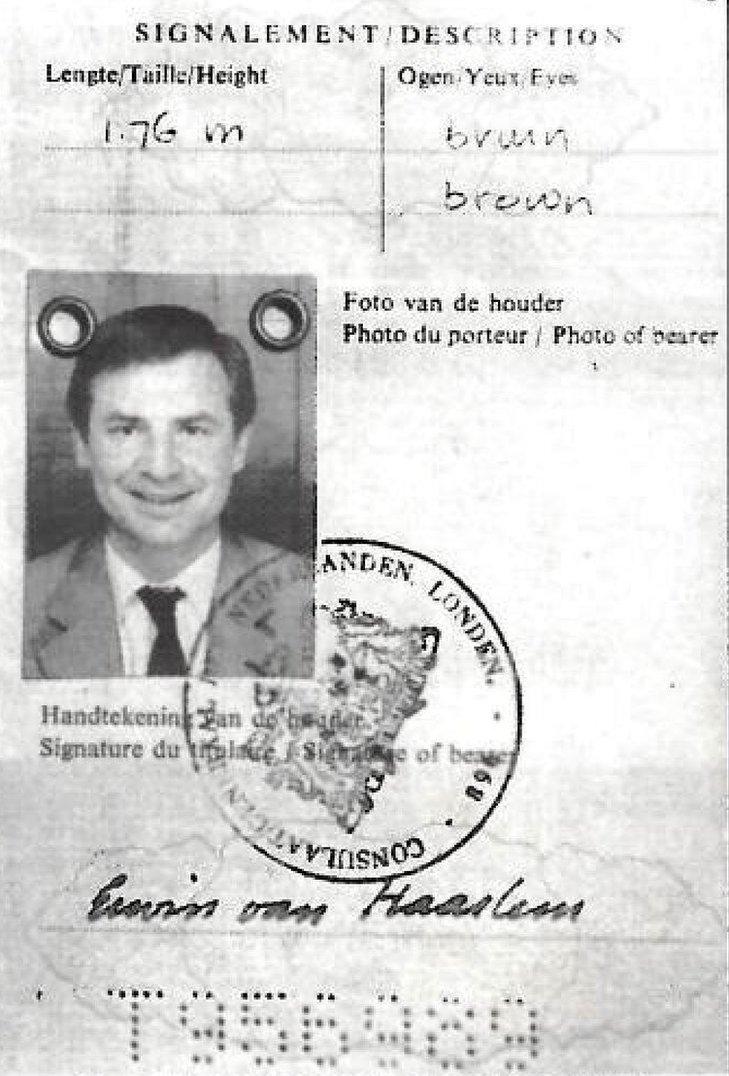
Van Haarlem's Dutch passport
He applied for a Dutch passport, and arrived in London by train in June 1975. To the boy from Prague, it was an alien city swarming with traffic, fashion, and danger. He took a job at the 24th-floor Roof restaurant at the Hilton Hotel on Park Lane, Mayfair, hoping to spy on the Royals down the road at Buckingham Palace.
At night, he exchanged coded messages with his home country via radio. One of his first ideas was to try planting listening devices in the Queen's furniture, he recalls, though he and his bosses realised it was technically unrealistic.
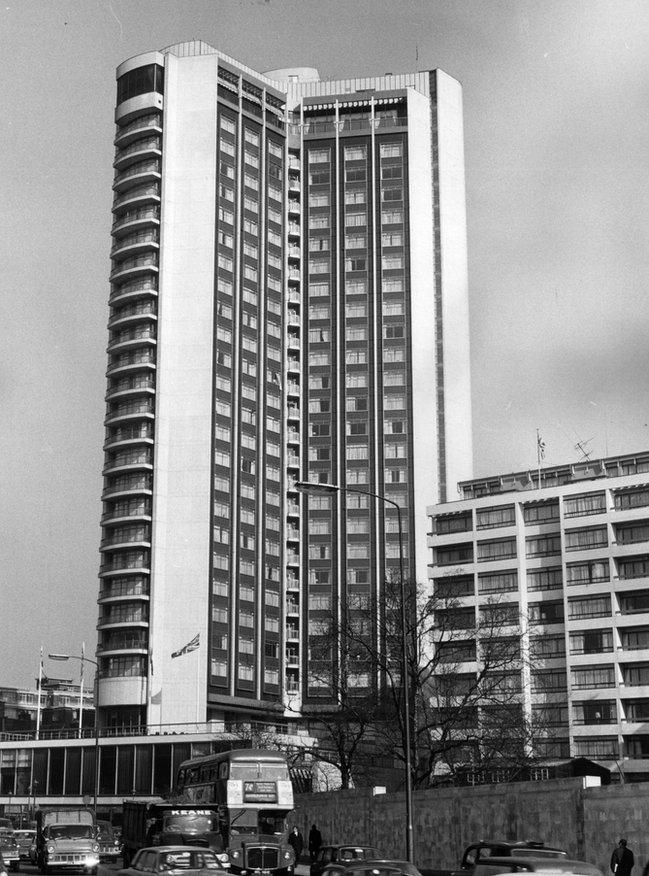
The Hilton Hotel on Park Lane
His secret career was running smoothly until late 1977, when he received a disturbing message from Prague: "YOUR MOTHER IS TRYING TO FIND YOU IN CZECHOSLOVAKIA WITH THE HELP OF THE RED CROSS. SHOULD THE RED CROSS FIND YOU, A MEETING IS TO BE AGREED WITH."
He read the message over and over again. In October of that year, Van Haarlem received a handwritten letter from Johanna van Haarlem. The Dutch embassy had given her his address, she wrote. She was thrilled to find him. As he had been ordered, the spy politely replied in November, enclosing some photographs. He began the letter: "Dear mother". When he sent a cordial invitation to visit him in London, she left immediately.

Johanna woke up early on 1 January 1978, in a West London hotel. Her stomach was knotted with nerves. She stepped on to the street littered with the detritus of New Year's Eve. It was her plan to arrive early and check out her son's address. But on the opposite side of the street a familiar-looking young man walked past.
"Are you Mrs van Haarlem?" the spy said, stopping in his tracks.
"Yes," she said.
"Hello Mother, it's your son."
They embraced in the middle of the street. Johanna stepped back to look at him. Tears were rolling down her face.
"Your father did not have such dark hair," said Johanna, studying him. Then she commented that he was shorter than his father.
Inside his apartment a champagne cork popped as Johanna breathlessly told him her life story. The bottle had frozen in the refrigerator but Van Haarlem managed to pour a couple of glasses.
She had grown up in The Hague, in Holland, and was an 18-year-old virgin when she met his father on a train, in November 1943. Gregor Kulig was a Nazi. He was blue-eyed, 23, and Polish. Handsome. At a party four weeks later, she said, he raped her.
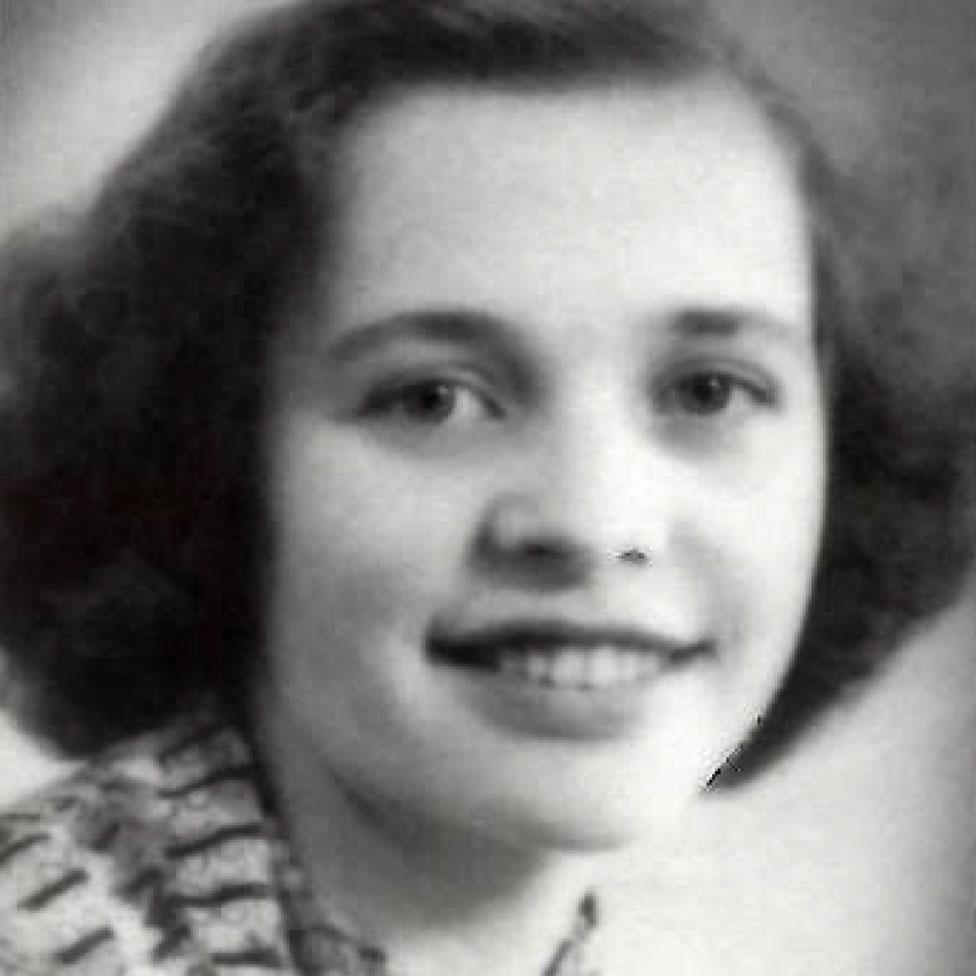
Johanna van Haarlem as a young woman

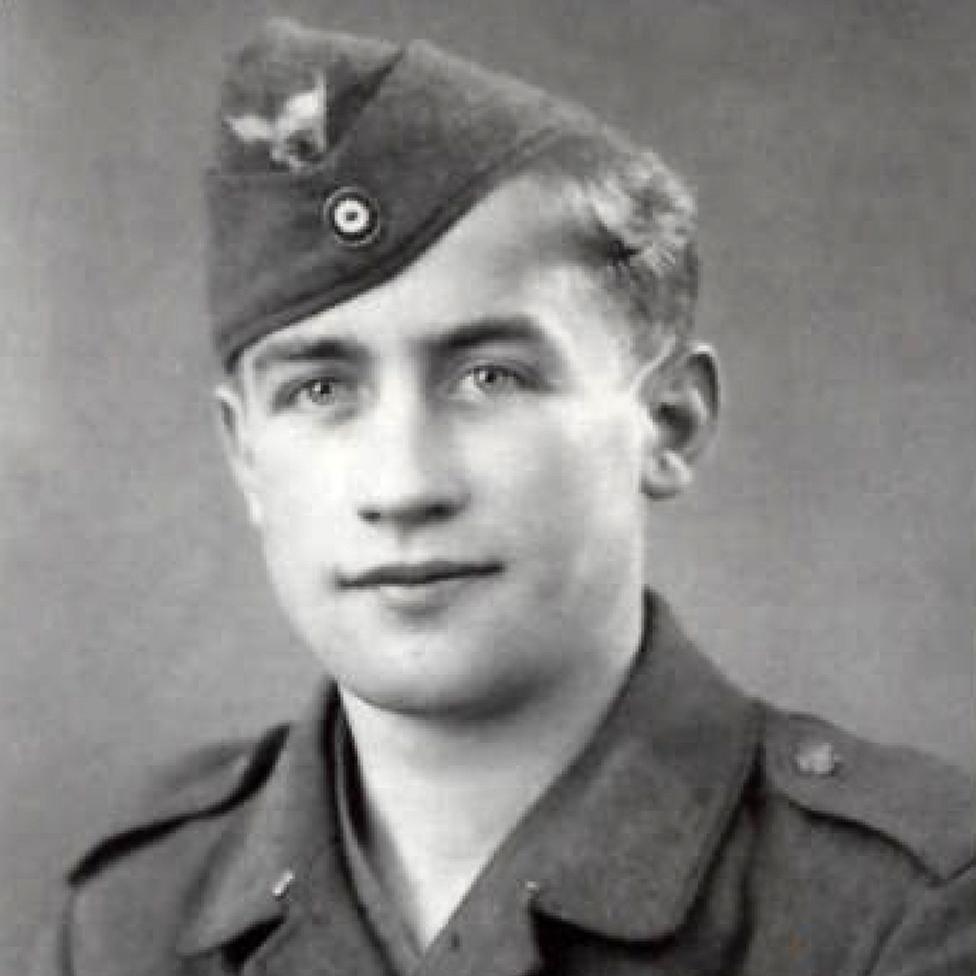
Gregor Kulig
And when her father discovered she was pregnant, he exploded. "You are a sinner!" he told her. He ordered her to take the child to a distant town and give him away.
Full of sadness and desperation, in autumn 1944 Johanna travelled to Czechoslovakia by train. After a brief effort to survive there as a single mother, she walked into an orphanage in Holesovice, Prague. Sobbing, she kissed baby Erwin goodbye, and returned to Holland alone.
Her father - a Jew who had joined the National Socialist Movement to protect his family - destroyed the adoption papers and banned her from ever speaking about her son.
Over the years, dozens of letters arrived from the orphanage asking Johanna to take back her child. They went unanswered. But every year on his birthday, Johanna silently remembered her missing son, his name she could not even speak: Erwin van Haarlem.
Now she had found him. As they finished their champagne, he took her hand in his.
"You have to believe it," he told her. "I am your son."
Shortly after their emotional "reunion", Johanna invited Erwin to meet the Van Haarlem family in Holland. When the spy arrived at her bungalow in early 1978, one-by-one he shook hands with the whole family. They studied him like a specimen in a zoo. Johanna's niece approached Van Haarlem, and seemed to scan him from head to toe. Did she know?
"He has the nice Van Haarlem legs," she told the crowd, approvingly.
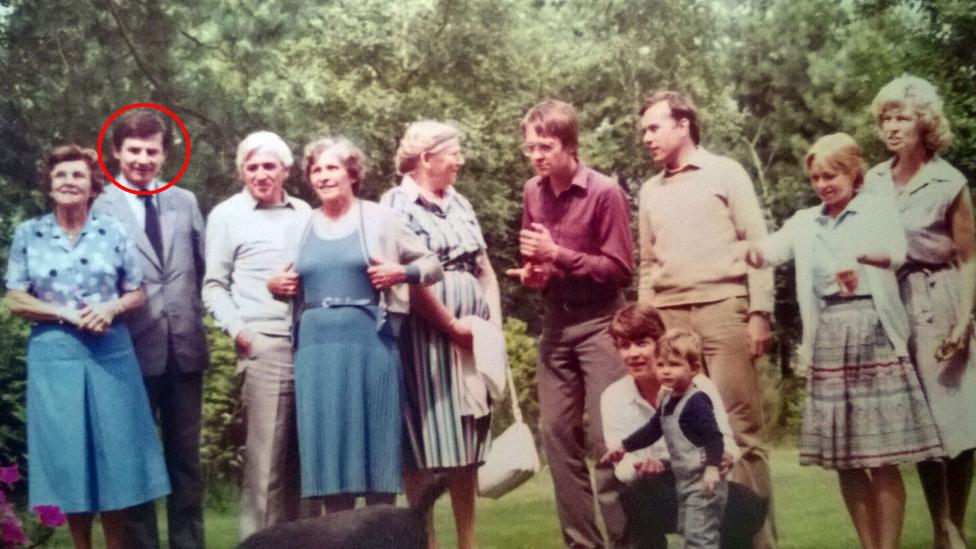
Johanna van Haarlem gathered her family to meet Erwin (circled)
Back in London, having a Dutch, Jewish mother only improved Van Haarlem's cover. His main task, the spy told me, was to gather information about Refuseniks, the Jews held in the Soviet Union despite their requests to emigrate, who had become political pawns in Cold War peace talks. He also gained prize information about underwater sonar chains, which alerted Nato to Soviet submarine movements.
British defence journalist Kim Sengupta later described Van Haarlem in this era as "a brilliantly successful deep penetration agent", who, over the years, visited the Polaris submarine base at the British Admiralty's Underwater Research Unit, as well as "a string of sensitive military installations".
For these fantastic intelligence scores, Van Haarlem received a medal from the Soviet Union at a private party held in his honour in Prague.
"He moved a lot," Johanna later told a Dutch radio station. "From that small apartment I visited the first time to bigger, fancier places… I had no idea why he moved so much. He was doing better and better, you could tell by his clothes, shoes and houses that he was going in the right direction."

Erwin showered Johanna with presents including a Wedgwood vase, a gold and sapphire ring, and a gold coin. But at heart he was tiring of this relationship with his "fake" mother. In his mind she was a Nazi, a fascist, and a collaborator with foreign soldiers. He recalls travelling to Holland to introduce a girlfriend to Johanna - keeping up appearances.
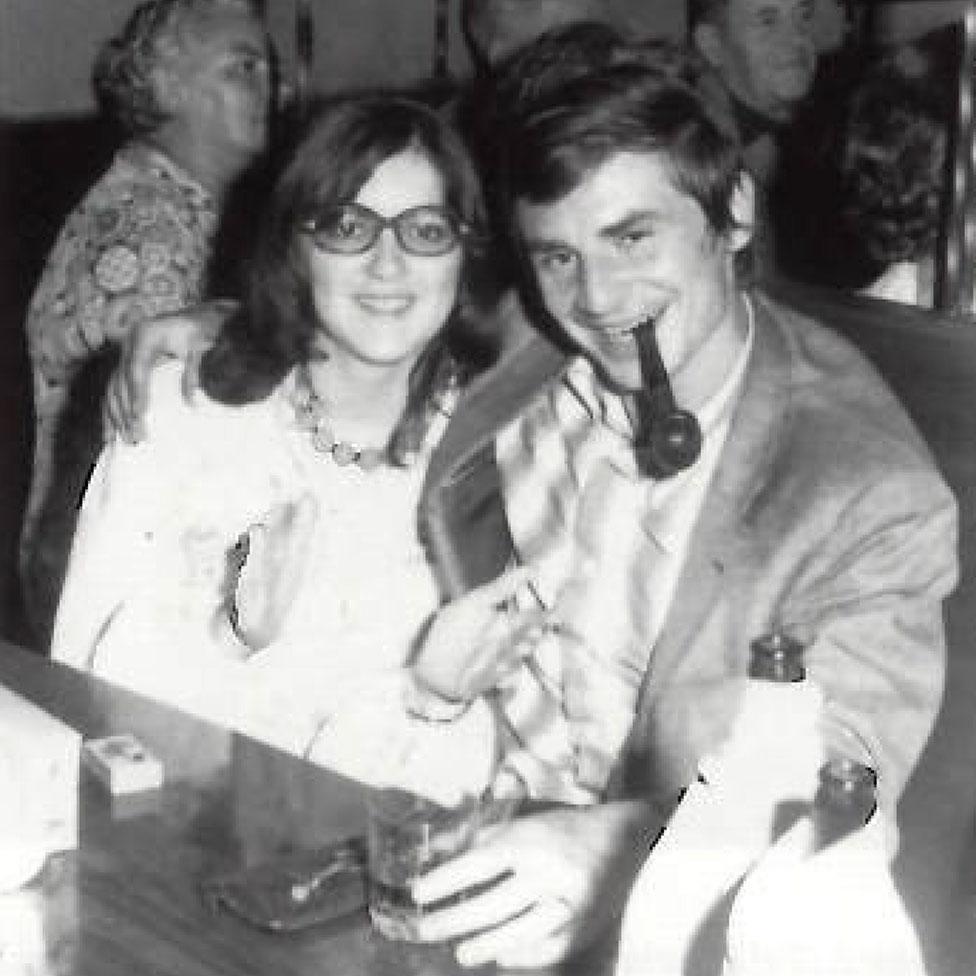

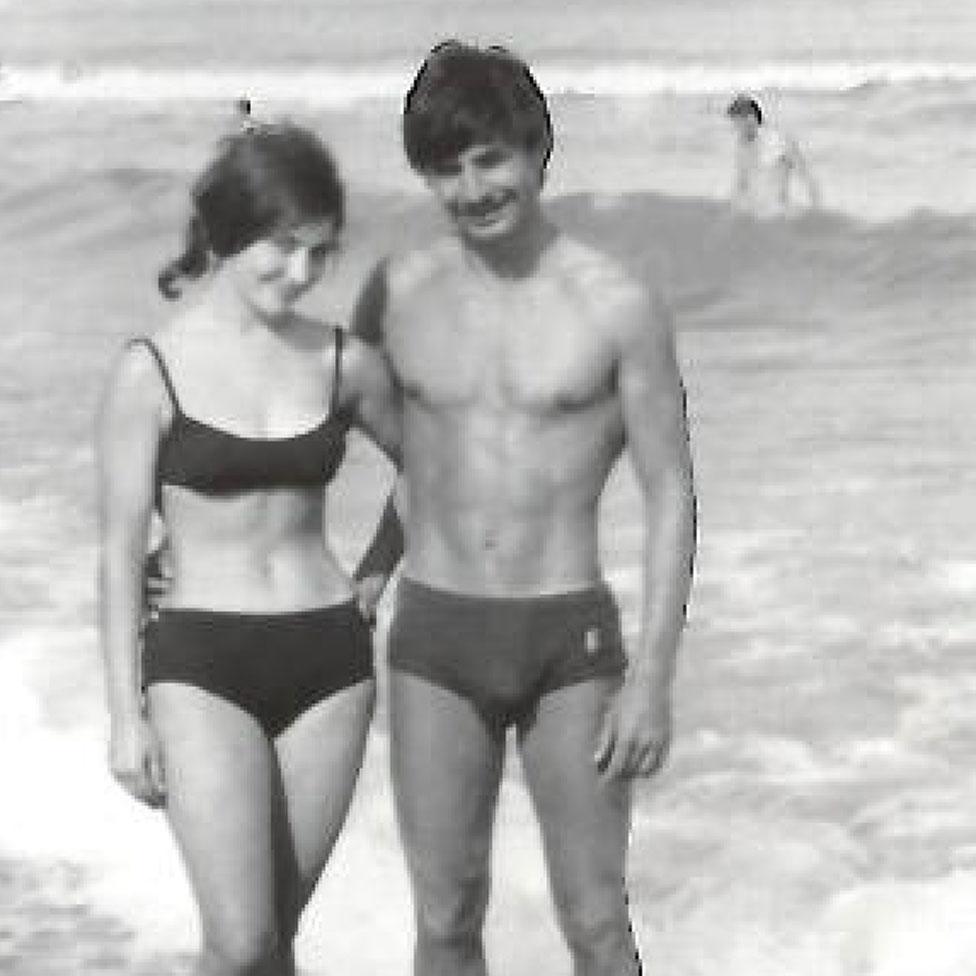
Inside the Dutch restaurant, folk music played and locals danced. Johanna got carried away, he said. A local man whirled her around the dance floor, and suddenly the spy saw her as a young girl, dancing with the Nazi soldiers.
A blind rage swept over him like a fire. "She is at that again," he thought. "She never changes. She is 60!" One of the men held Johanna close, and gave a friend a suggestive wink. It nearly tipped van Haarlem over the edge.
Some time later, back in London, Van Haarlem's telephone shrieked. The blissful silence in his apartment was shattered. He sat up in bed and checked the time. It was 03:00.
"Dear son, I could not help it, I had to hear your voice." Johanna was slurring. Van Haarlem guessed she had been drinking. "I will sell my house and come to London," she said. "We will live together."
"I absolutely understand why you are so upset, Mum," he said. "Of course it would be wonderful to live together, especially since our fate prevented us doing so in the past. Mum, you know what? Let's go to bed now and think about it overnight. I will call you tomorrow."
He slammed down the phone but could not drift back to sleep. He was growing increasingly concerned about her behaviour. He simply couldn't afford her to be a liability. His life depended on it. But there was little he could do - he was stuck with her.
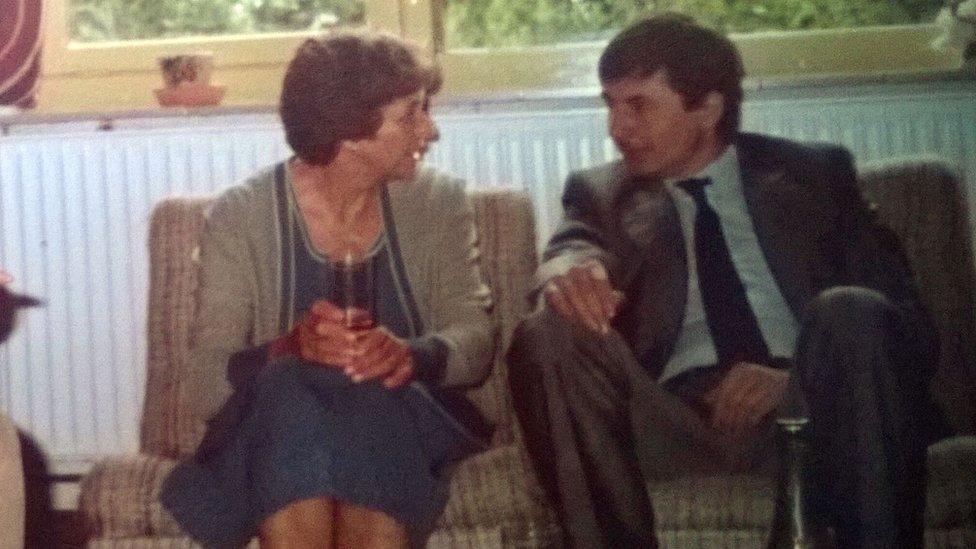
On her next visit, mother and son were driving through Golders Green in North London when Van Haarlem forgot to give the right of way to another car. The other driver slammed on his brakes to avoid a crash.
"Sorry, friend!" said Erwin pleasantly, with a wave of his hand.
Johanna snapped. "Why are you apologising?" she shouted. "You are so yielding, so soft! A typical Slav!"
Van Haarlem was shocked. "He had the right of way," he said.
"Right of way! Right of way!" she parroted.
Gripping the wheel, the spy fumed. "You'll pay with interest for that," he thought. But he would never get the chance.
One afternoon in autumn 1986 Van Haarlem noticed two cars driving closely behind him, pulling manoeuvres he recognised from his spy training.
"They must be tailing someone," he thought. Then the penny dropped: "They are tailing you! You stupid ass!"
He had by now quit his job at the Hilton - after rising from a lowly waiter to assistant purchase manager. He had set up himself up as a freelance artist and art dealer, and paid cash for the unassuming flat in Friern Barnet.

Friern Barnet, looking west from Arnos Grove
It should have been the last place anyone would look for a foreign spy, but it soon became a hotbed of chicanery. There was the technician who came to "fix" his telephone, the new postmen, and the dedicated window cleaners who washed his windows not weekly, but seemingly daily.
Van Haarlem was not the only one who noticed peculiar goings-on.
Mrs Saint, 61, who co-ordinated the local Neighbourhood Watch Scheme, said she telephoned the police in November 1987 to report strange noises and a "Morse code" interference which affected her television reception every night at 21:20.
Soon afterwards, in April 1988, that mysterious van parked outside Van Haarlem's apartment.

Johanna van Haarlem heard about the arrest on BBC radio. Then investigators arrived at her home and asked her to testify against the spy at his trial.
"When we finally made eye contact I felt hurt. I didn't see any sign of remorse, not a wink, no warmth, nothing," she said of the trial. A part of her was in denial, continuing to look in vain for a son's affection. "He showed me coldness," she said, "and looked at me like this was the end."
Van Haarlem was sent to Parkhurst prison on the Isle of Wight. After five years, the end of the Cold War, and a hunger strike, he was released and deported to what had by then become the Czech Republic.
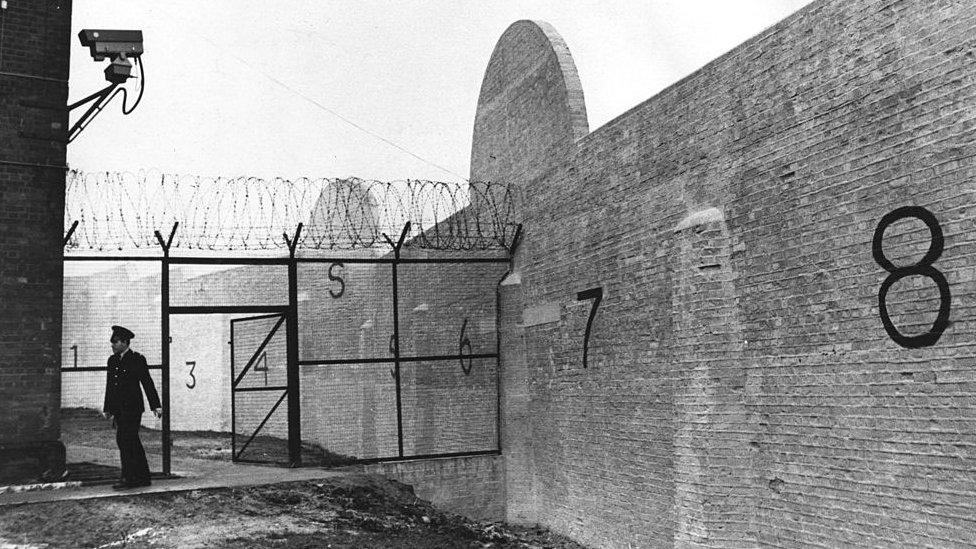
I asked if he ever felt any compassion for Johanna.
"I had no pity whatsoever," he said.
"She was rather dominant and I had to put up with her. Sometimes I had enough of her," he added, describing many real mother-son relationships.
During the five years he spent in a prison cell, he went on, one thing about his case remained a puzzle. It was a statement that Johanna made about how she found him. "Without being asked," he told me, "she said only on her own, from her own will, she started the whole action, trying to find me."
From her own will. It was a funny thing to say, he thought.
Was it a coincidence that Johanna's motherly instincts awakened just months after his application for a Dutch passport? Who else might have inspired her to track down her son, and why? We may never know, as Johanna van Haarlem died in 2004. However, the spy has his own theory.
"We thought she was under the guidance of MI5 or the Dutch security service," he said.
Could Johanna also have been a spy? Though it seems unlikely, in this world of disguise and deception, anything is possible.
Adapted from The Spy With No Name by @JeffMaysh, external (Amazon Kindle Singles), published today.
Van Haarlem photographs courtesy of Jaroslav Kmenta

Join the conversation - find us on Facebook, external, Instagram, external, Snapchat , externaland Twitter, external.